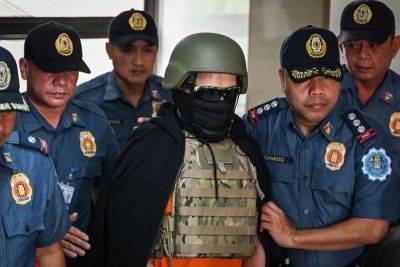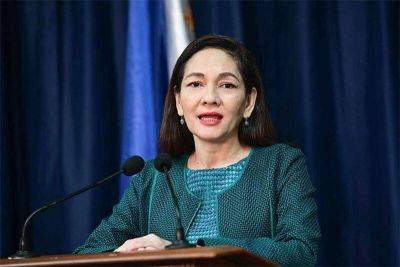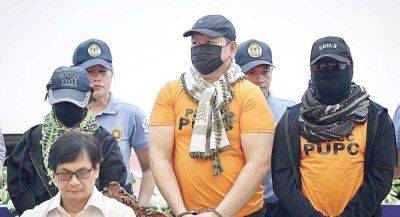Remulla: U.S. expected to file extradition request for Quiboloy
MANILA, Philippines — The United States is expected to file an extradition request to the Philippines for the transfer of newly-arrested doomsday preacher Apollo Quiboloy, Justice Secretary Jesus Crispin Remulla said on Monday, September 9.
He said that prior to the possible extradition, the preacher must be first tried by local courts.
“He’ll (Quiboloy) be charged and we expect the U.S. to apply for an extradition request. Remember, we have a treaty with the U.S. despite the law of the land. We will have to study it properly so we’ll know what to do,” Remulla said in an ambush interview with reporters.
“Ang aking magiging instruction sa prosecution ay prepare all the evidence so we can ask for a continuous trial, para matapos agad ang mga kasong kailangan litisin,” he added.
(My instruction to the prosecution will be to prepare all the evidence so we can request a continuous trial, in order to quickly resolve the cases that need to be tried.)
In 2021, U.S. prosecutors indicted the preacher and his associates with operating a trafficking ring that forced girls and young women to engage in sexual acts with him by threatening them with "eternal damnation.”
Quiboloy is also accused of running a labor trafficking operation that allegedly used fraudulently obtained visas to bring church members to the U.S., where they were forced to collect donations for a fake charity in California.
This led to the preacher’s inclusion to one of the Federal Bureau of Investigation’s most wanted individuals.
Aside from charges from the U.S., Quiboloy also faces abuse and trafficking charges in local courts.
Extradition is a formal process in which one country hands over an individual to another jurisdiction where they are accused or convicted of a crime.
The extradition laws in the Philippines are governed by Presidential Decree No. 1069, also known as the "Philippine Extradition Law".
During the extradition process, a country with an extradition treaty requests the transfer of an individual from their country to face charges in the requesting country.
“Under our extradition treaties with other countries, there must be a formal request coursed through diplomatic channels by the







